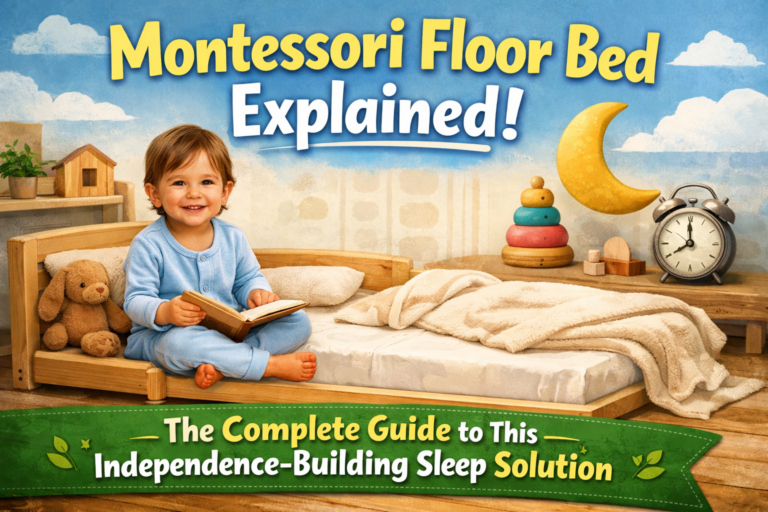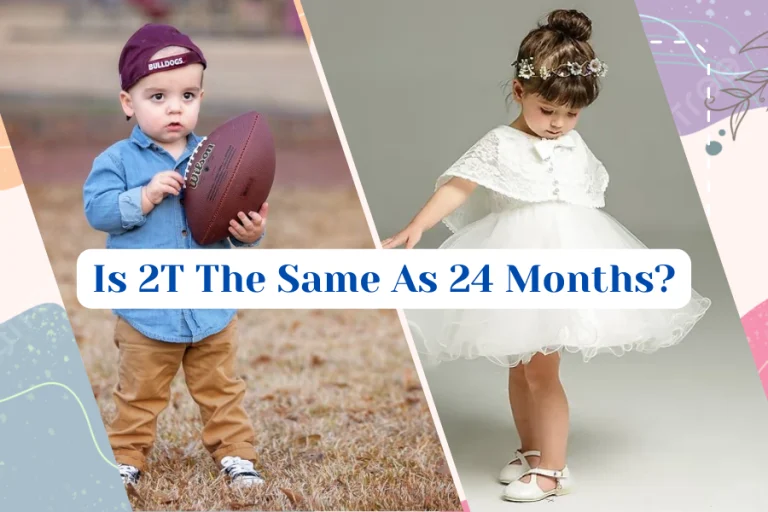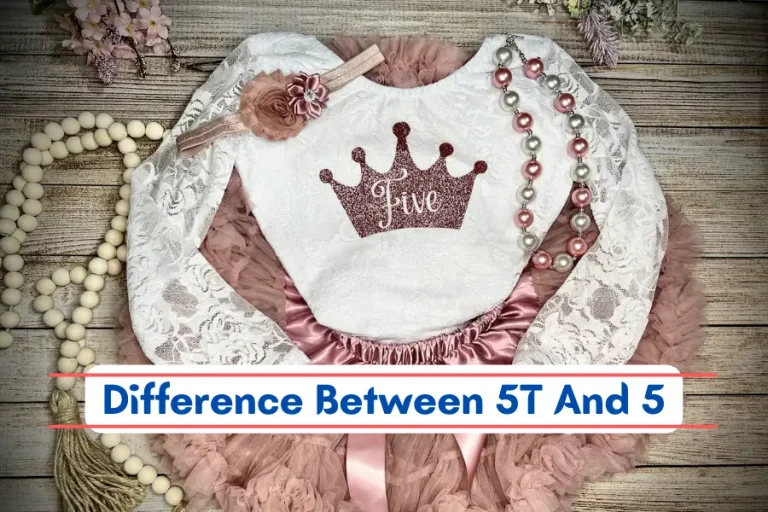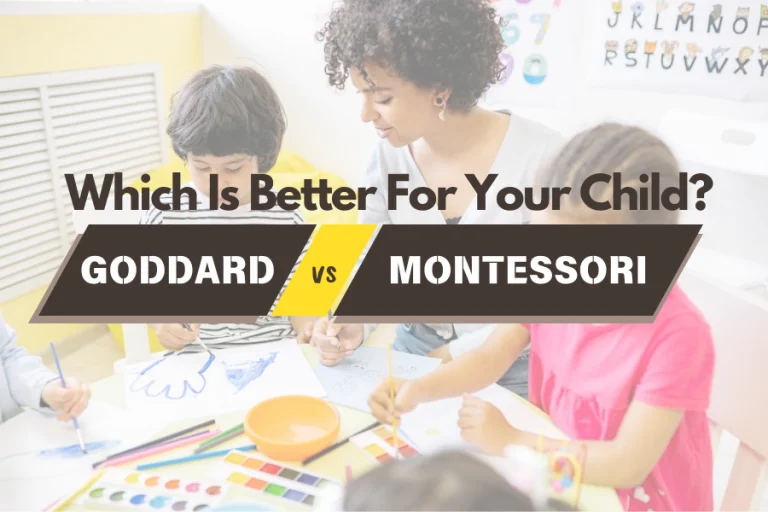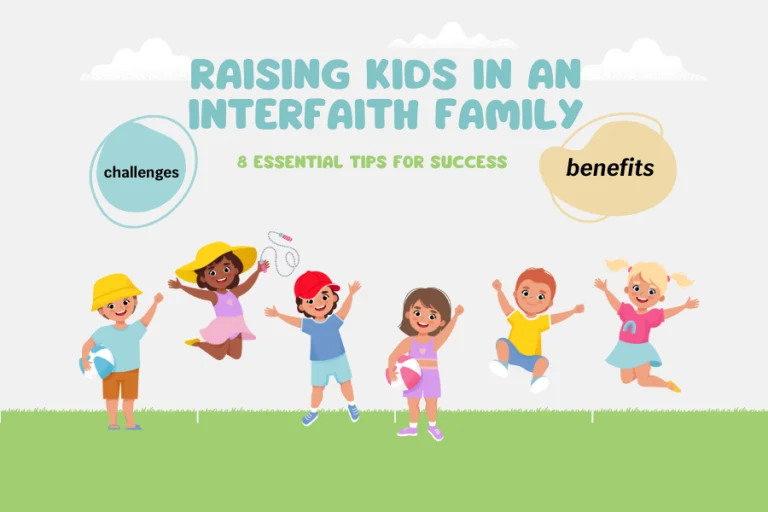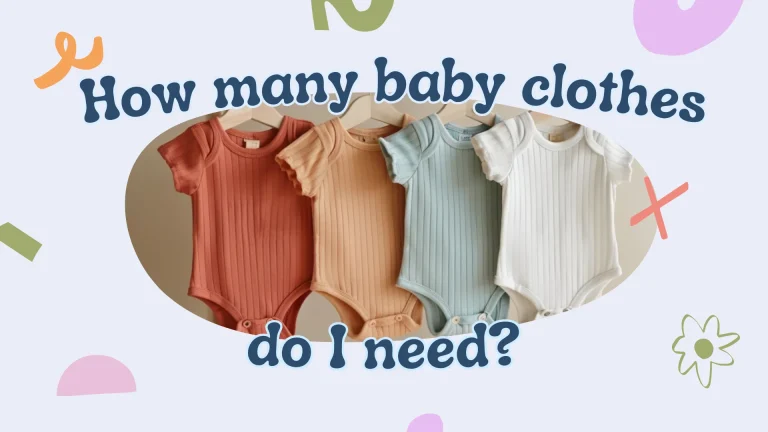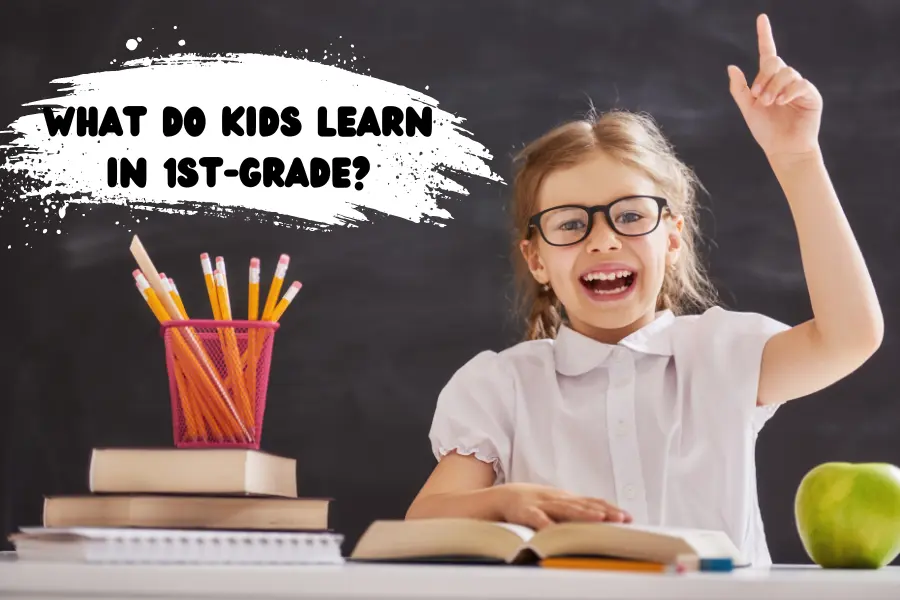
Children starting first grade marks a special moment for parents. The new step feels both exciting and emotional for our child. At the same time, parents can feel hard because they may not know what their child will learn.
First grade brings big changes for kids. They leave behind the fun setting of kindergarten and enter a place with focused learning. Remember the time when your child also had to overcome many difficulties to get ready to start preschool. From now on, they have matured to be able to step into the gate of grade 1 alone. This shift may feel a bit tough for both kids and parents.
Therefore, knowing “ what do kids learn in 1st-grade?” is important. Being prepared can help make the first day smoother. Babies Parent hope that careful preparation will help children feel confident and integrate in the best way possible.
What Do Kids Learn In 1st-grade? 8 Important Subjects
Curriculums might differ from state to state, but first graders usually study the same main subjects. In their first year, kids learn math, reading, writing, science, and social studies. Besides that, they will have more extra subjects to explore: Geography, Art, and Physical Education.
Reading in the 1st Grade
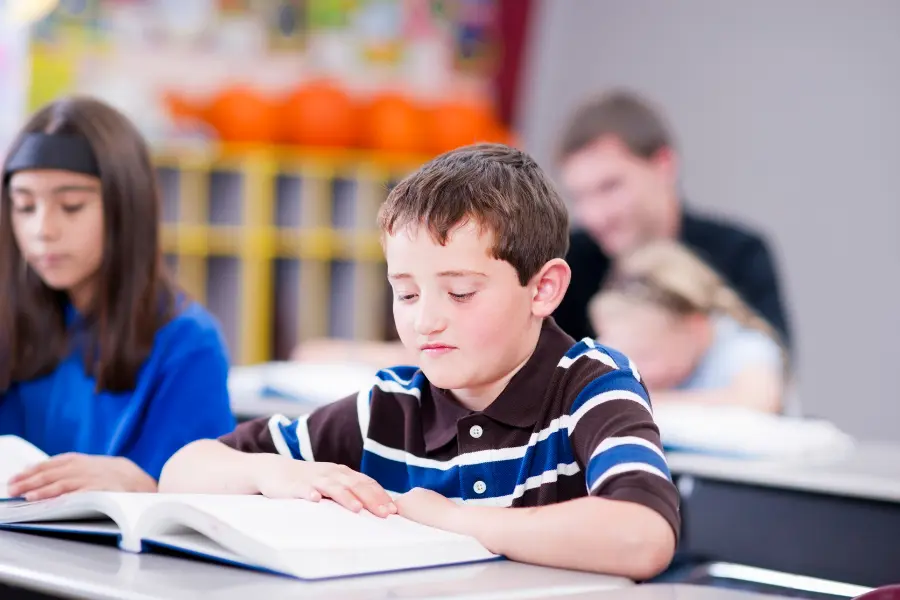
In 1st-grade, reading becomes more challenging. Kids start learning harder words and sounds. They read paragraphs and answer questions about what they read. They’re also expected to pick their books, read independently, and stay focused longer.
First graders need to read smoothly and understand the text. Key reading skills include:
- Reading all first-grade materials closely
- Re-telling stories from their books
- Describing characters in stories
- Learning new words and using them in sentences
- Knowing the difference between stories and facts
By the end of the year, they should be able to read books, menus, posters, and magazines at 1st-grade level. They’ll also choose more of their reading and spend more time with it as they grow.
Writing in the 1st Grade
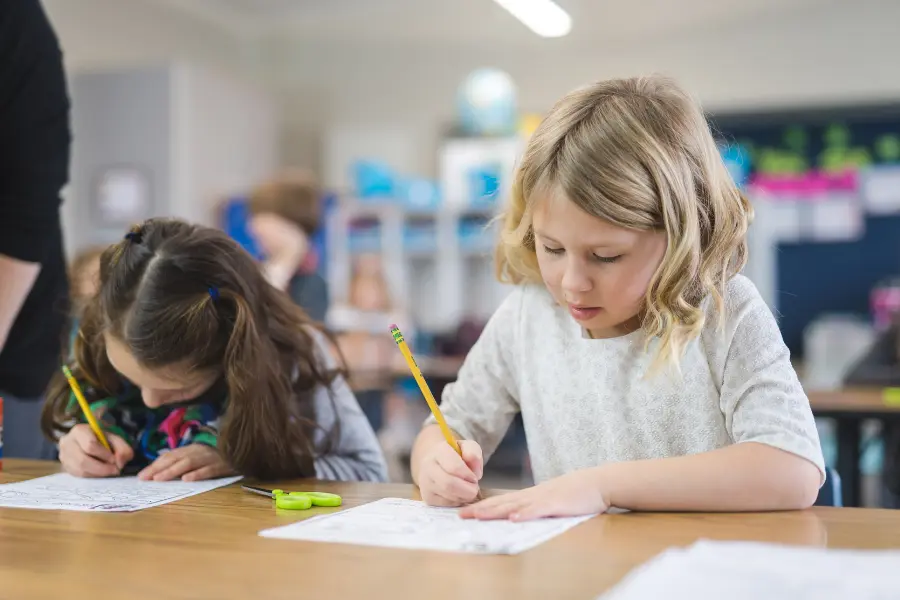
In 1st-grade, writing skills grow a lot. Teachers help kids explore creative writing, encouraging them to come up with their ideas. Students also work on sounding out words and writing them correctly. Handwriting improvement is another big part of first-grade writing lessons.
So, what do kids learn in 1st-grade for writing? Other important lessons include:
- Knowing when to use capital and lowercase letters
- Using periods and question marks the right way
- Using common words properly in sentences
- Making writing clearer and more detailed
- Adding descriptive words
- Writing stories with two or more events in order
- Spelling familiar words correctly
- Learning how to review and edit their writing
Students will also work on creating drafts. These can be spoken, drawn, or written. These drafts help them organize their ideas with structure and details. A good story will have a clear beginning, middle, and end, with enough detail to keep it interesting.
Math in the 1st Grade
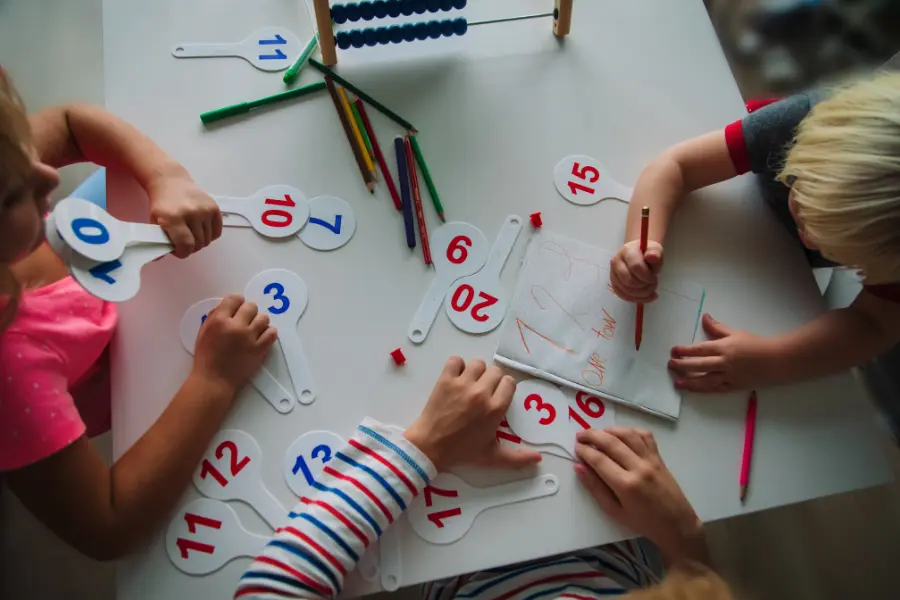
By 1st-grade, kids already know how to count, recognize, and group numbers. First-grade math lessons will review these basics. After that, teachers will introduce simple addition, subtraction, and problem-solving.
1st-grade math builds a solid base for the future. Students will learn to:
- Add and subtract small numbers
- Count money and identify coins and bills
- Read an analog clock
- Recognize shapes
- Understand number sense
- Explore measurement and geometry
- Tell time and understand money
- Solve basic word problems
- Read, write, and count numbers over 100
- Understand base values
- Count by tens or ones
- Compare objects by length, weight, or volume
- Use symbols like =, <, and > to show more or less
First graders use math skills to spot and apply number patterns and relationships. They will solve word problems by adding and subtracting whole numbers up to 20; using objects, drawings, or number sentences.
Word problems are math questions explained through a story. When kids represent a word problem, they show their understanding by using objects, drawings, or writing it out with numbers. This helps them see the math in the situation more clearly.
Science in the 1st Grade
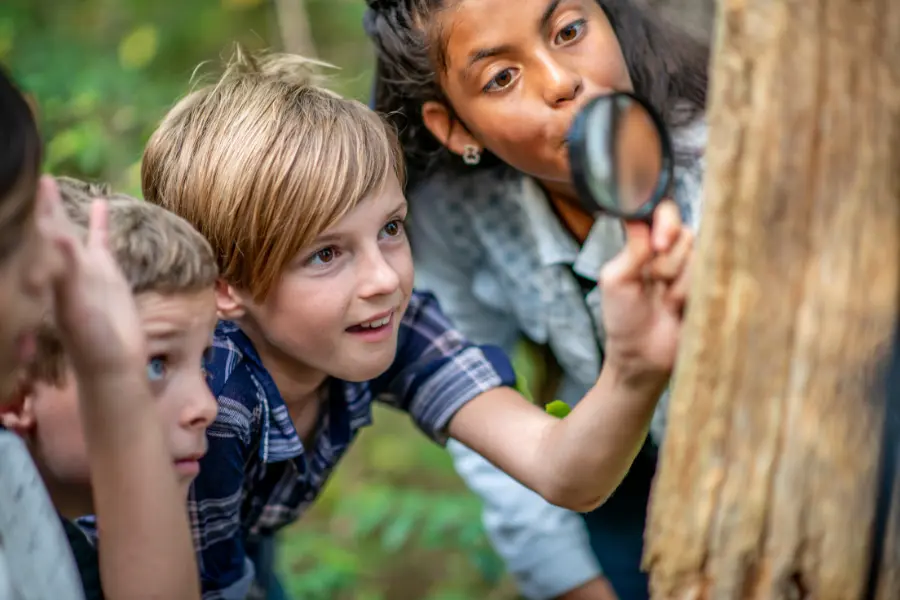
Science will be an interesting subject, stimulating kids’ experiences and creativity. What do kids learn in 1st-grade in Science lessons? First graders will explore life and natural science, using visuals and simple experiments. Key topics include:
- The life cycle of a butterfly
- Learning about animals, insects, and their traits
- Understanding weather, climate, and how rain forms
- Basics of physical science, covering gases, liquids, and solids
- Introduction to measuring tools like thermometers
- Recognizing weather patterns
- Exploring environmental science
First graders will develop skills to ask questions and find answers during classroom and outdoor activities. They are expected to ask questions about animals, plants, objects, and natural events like weather and seasons.
By observing the world around them, kids will learn how to explore and gather information, fueling their curiosity about nature and science.
Social Studies in the 1st Grade
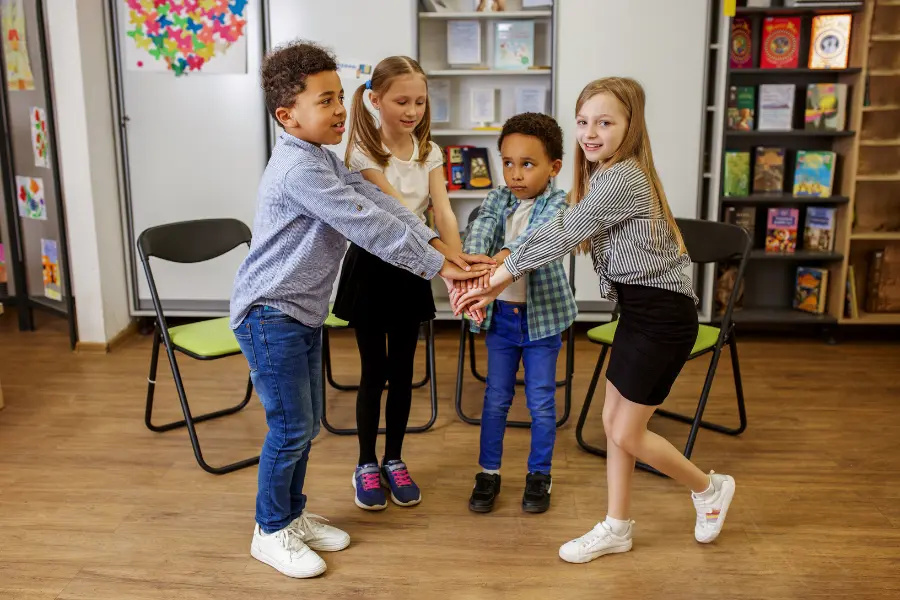
Social studies help students build social skills and learn how communities work. Key topics include:
- How many states make up the country
- How neighborhoods and local communities form a city
- The concept of a community
- Learning about public and private places like libraries and healthcare centers
- How different parts of a community work together
The student uses problem-solving and decision-making skills. In this subject, they work independently and teamwork. The student will be experienced in a problem-solving process. They can learn to identify a problem, and gather information. Moreover, kids will know how to acknowledge the advantages and disadvantages and evaluate the solution.
Geography in the 1st Grade
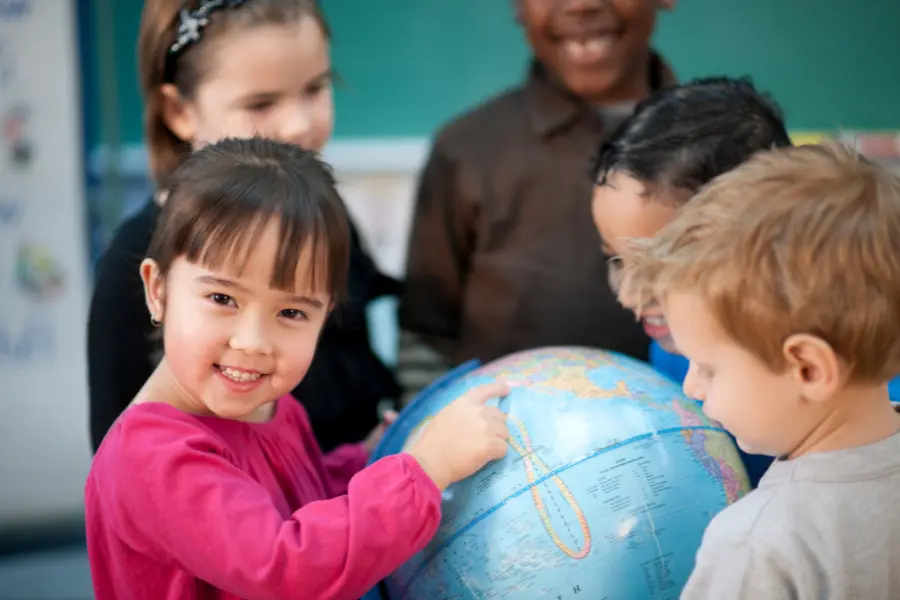
Geography becomes a fun topic for first graders as they learn to create and use simple maps. These maps can include their home, classroom, school, or community.
Geography lessons in first grade help students learn more about the Earth. Key topics include:
- Maps and globes
- Countries and cultures
- Directions
- Exploring their area
- Caring for the Earth
The maps can be detailed or simple, but many first graders may need extra help. Many parents will wonder “What do kids learn in 1st-grade in Geography?” because this subject is quite complicated compared to learning writing and math. Spatial reasoning—seeing something and drawing it on paper—can be tough for them. Working on this as a class can be a great group activity, making it easier for students to understand and enjoy the process.
Art in 1st-Grade
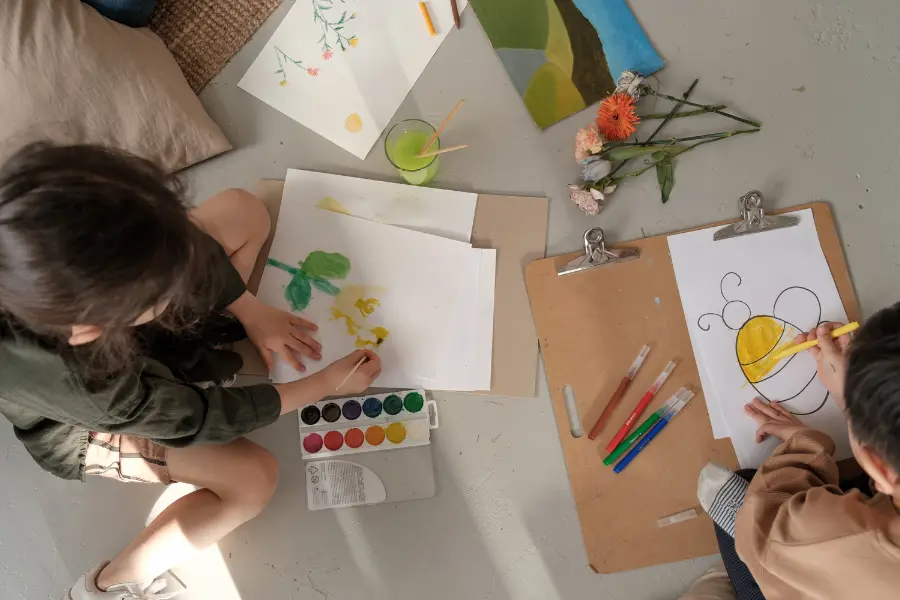
Many art teachers know the book Beautiful Oops, a must-have in elementary art rooms. With fun illustrations and interactive elements, the book teaches a valuable lesson about turning mistakes into something beautiful.
Art goes beyond drawing and painting; it includes music, sculpting, building, and woodworking. First graders are naturally creative. They can fully unlock their imagination. Some exciting things they learn in art class include:
- Drawing and coloring
- Crafts and hands-on projects
- Learning about famous artists
- Expressing emotions through art
- Recognizing and appreciating beauty in different forms
Physical Education in 1st-Grade
One of the reasons why first graders feel bored in school is probably because they don’t get to move and play as much as they did in kindergarten. Therefore, physical education is very suitable to balance both the mental and physical activities of children. First graders don’t need a strict exercise routine, but daily physical activity is important, with a focus on fun and play. With concerns like childhood obesity and diabetes, encouraging movement at this age helps build lifelong healthy habits. In first-grade PE, kids learn important skills like:
- Exercise and movement
- Teamwork
- Basic sports skills
- Healthy habits
- Fun ways to stay fit
These activities make staying active enjoyable while teaching kids how to live a healthy lifestyle.
Reasons Why 1st Grade Is Important?
1st grade is like the first step in a long journey. Kids start laying the groundwork for all their future learning. First grade sets the stage for a solid education.
Reading opens the door to new stories, fun facts, and adventures in books. First grade is where that journey begins.
But 1st grade is not just about reading and math. It’s also about making friends and learning to work with others. These social skills are important and will be used throughout life. Success in first grade builds kids’ confidence, helping them believe in themselves as they take on bigger challenges. However, if your child is struggling, it doesn’t mean they’re bound to fail. It just means they may need some changes, like extra help in reading or math, a different classroom setting, or exploring other learning methods.
Preparing for 1st grade
As first graders bring boundless energy and strong emotions, they’ll also face new responsibilities. Your child will adjust to longer school days, take on more homework, and learn to be more independent. The main focus remains on building reading and math skills, but lessons in arts, social studies, science, and physical education will also be part of the mix. When you understand “ what do kids learn in 1st-grade?” in each subject, you will find it easier to plan to prepare your children well. Many skills will build on what they learned in kindergarten, with first grade focused on mastering those lessons. So, it’s not a big leap from what your child is already familiar with.
Not only do children need to prepare, but parents also need to be mentally prepared to welcome their child’s development both mentally and physically. Try to be patient, and to understand what your child is saying to you and how they feel. We can ask them after a day of school activities. This is the way we practice gentle parenting and support our children in the right way.
How can you support your kids?
At home, you can support your kids to improve their skills in core subjects such as Reading, Writing, and Math. This is because all these subjects can apply to real-life
For Reading subject:
- Offer a wide range of books and reading materials.
- Let your child see you enjoying reading by reading nearby.
- Read to your child daily.
- Take time to listen when your child reads to you.
For Writing subject:
- Tell stories to your child and make up stories together.
- Give your child different types of paper, pens, markers, and pencils.
- Encourage your child to draw pictures that show their stories and ideas.
- Ask your child to share more details about their writing to help expand their ideas.
- Show that you care about and are interested in what your child writes.
For Math subject:
- Give your child household items to help them solve word problems.
- If they have trouble reading the problem, read it aloud and ask questions about the math.
- Let your child assist you in solving real-life math problems during daily activities.
Final Thought
“The overall goal of first grade is to master skills in all areas—social, emotional, cognitive, language, and physical,” says Rashi Sharma, a relationship development specialist at the National Association for the Education of Young Children.
So, after learning “What do kids learn in 1st-grade” with 8 important subjects, you will see that all of those lessons support the development of the above skills most easily. Regardless of the main subject or secondary subject, children can develop both thinking and emotions. There’s still lots of time for play, and great first-grade teachers make learning fun. Preparing your child for first grade is a gift. It gives them the tools to confidently express themselves.

